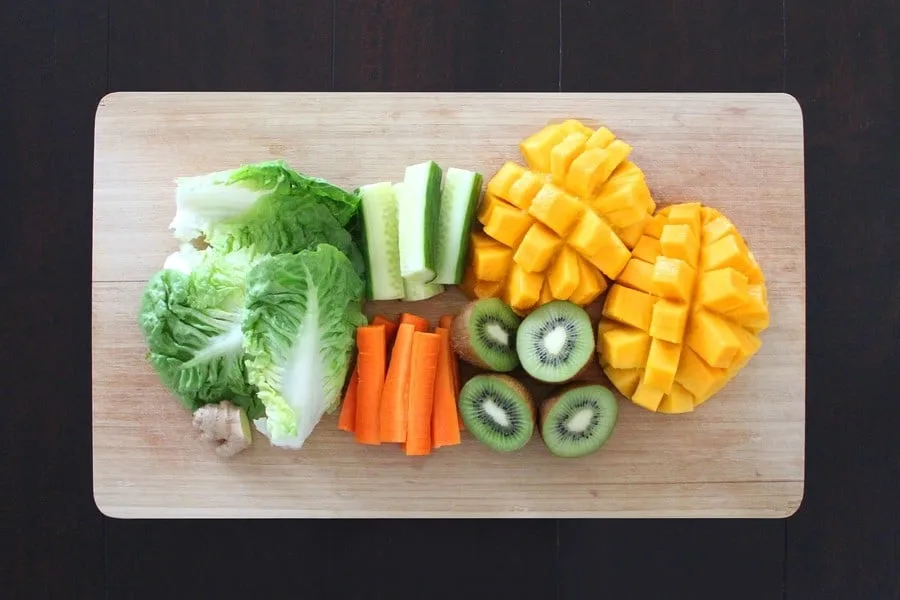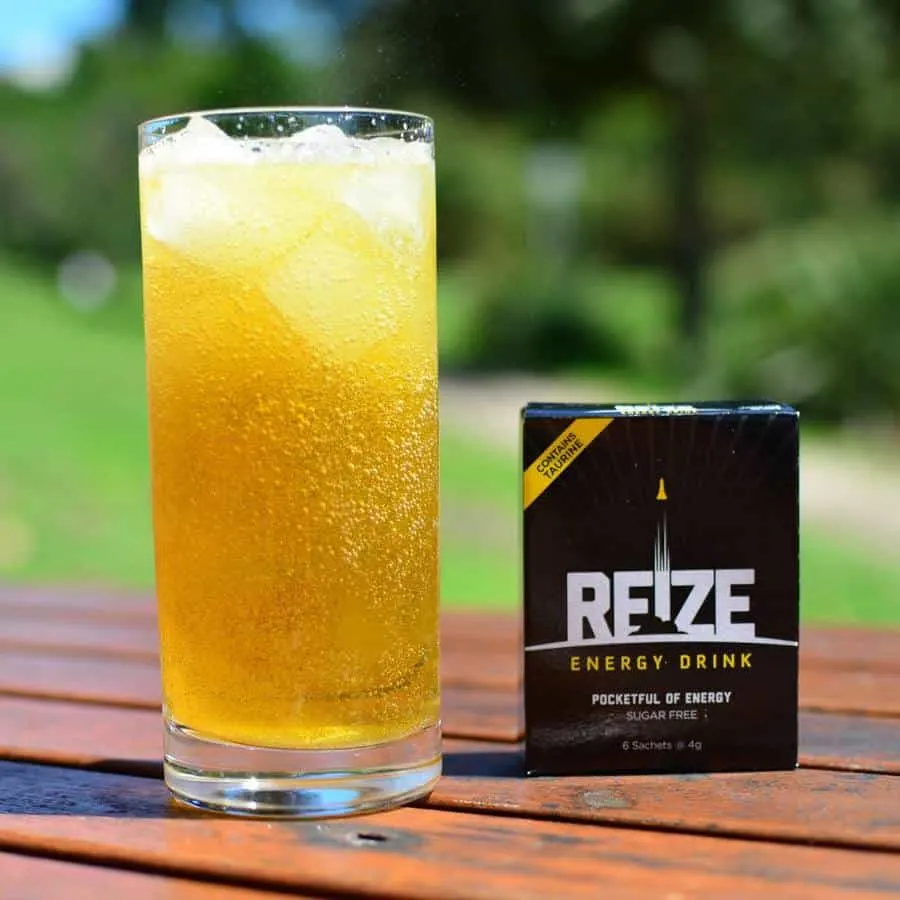Whether it’s from the flu, a bad cough, or a stomach bug, you may not feel like yourself even after you’ve fully recovered.
Plus, you might still have to go back to work or school despite not feeling all that energetic yet.
Thankfully, there’s a way to reduce the lethargy and tiredness you feel after an illness. And the answer is energy drinks like Zipfizz, XS, and REIZE!
Energy drinks can boost your body’s energy levels and reduce your fatigue so you’ll be able to perform just as efficiently as before.
In this article, I’ll be talking about how energy drinks can help you after you’ve recovered from an illness and recommend a few to try.
If you just want to go straight to see my recommendations, skip to the end of this post.
Ingredients in Energy Drinks
Caffeine

Caffeine is the major ingredient that gives energy drinks their energy-boosting properties.
Depending on the brand, levels of caffeine in energy drinks will differ from one to another. Some energy drinks have a higher caffeine content while others have lower amounts.
The average adult is recommended to have no more than 400mg of caffeine in a day, though how much caffeine you can consume depends on your caffeine tolerance.
If your tolerance to caffeine is not that high, a small amount will do the trick.
Aside from making you feel more alert and awake, caffeine can provide many other benefits to help you bounce back after an illness, as long as you don’t consume it excessively.
The caffeine in energy drinks can push back the sluggishness you feel after an illness and help give you energy to get you back on your feet, especially if you don’t have the luxury of staying at home every day.
However, take note that caffeine could disrupt your sleep as it might make it more difficult for you to fall asleep.
A 2013 study reported that consuming caffeine 3-6 hours before bedtime could result in sleep disturbance.
Thus, you should avoid having any caffeine near your bedtime, leaving at least a minimum of a 6-hour gap before bedtime.
Sugar
Many energy drinks contain tons of sugar and are not very healthy especially if you’re still weak after an illness episode.
Sugar-free energy drinks are better options while your body is still recovering. Thankfully, many famous brands like Red Bull and Monster have sugar-free versions that you can easily find in your local stores.
The reason sugar is bad for you after an illness is that it can drain your energy and suppress your immune system, which isn’t ideal if you’re still in recovery mode.
In fact, regardless of whether you’re feeling well or not, you should always control your daily sugar intake.
The AHA has guidelines on the amount of sugar the average adult should have per day.
| Men | 36g/150 calories |
| Women | 25g/100 calories |
Other ingredients
Other common ingredients in energy drinks include taurine, guarana and B vitamins.
If caffeine is a concern for you, you might want to be on the lookout for guarana among the ingredients on the label at the back of the can.
That’s because guarana adds to the caffeine content of an energy drink and it’s often not included in the amount of caffeine stated on the can. You might find yourself unknowingly consuming more caffeine than you want to.
Of course, there are more ingredients in energy drinks aside from the ones I’ve mentioned. Make sure you always read the nutritional label and do some research before choosing an energy drink.
You should also always check with your doctor first if you’re unsure about whether you can consume a particular ingredient in an energy drink or not.
Check my article here if you’re looking for energy drinks without guarana.
Can energy drinks boost your energy after an illness?

Energy drinks contain caffeine and a mixture of other ingredients that could boost your energy levels after you’ve recovered from an illness.
Caffeine is a substance that can stimulate your brain and nervous system to become more awake. It is also found in other food and drinks like coffee, tea and chocolate.
A study performed on 24 participants reported that their alertness improved after consuming a moderate amount of caffeine.
So, if you’re still feeling lethargic after an illness but need to get back to work or school, have an energy drink.
Drinking an energy drink will stave off the feeling of tiredness temporarily and supply you with a jolt of energy that’ll have you back on your feet.
However, getting enough rest after your body has recovered is also very important for properly regaining your energy.
Caffeine can interfere with a good night’s rest, so you might want to be careful about consuming energy drinks, especially before your bedtime unless you plan to stay up.
If you want to avoid this from happening, decrease your caffeine intake or completely stop consuming caffeine until your body is fully recovered.
Is it ok to consume caffeine after you’ve recovered from your illness?
You can consume caffeine after your recovery from illness if your doctor permits it. Caffeine can be beneficial in reducing fatigue and grogginess that come with recovering from an illness.
Caffeine can improve cognitive abilities like reaction time, concentration, memory and alertness and in maintaining your mental performance.
This is especially handy if you still need to attend work or classes after your recovery to full health.
Plus, there’s some proof that caffeine may not be as dehydrating as it’s often made out to be.
Mayoclinic states that while caffeine may be a mild diuretic, it only increases the need to urinate and dehydration seems unlikely.
An article from Healthline explains that for caffeine to create a dehydrating effect on your body, you’d need to consume more than 500mg of it in a day.
In fact, caffeine may help to hydrate your body instead. A study conducted on 50 participants reported that the moderate consumption of coffee was as hydrating as drinking water.
Though, while you’re still recovering from an illness, nothing should replace plain water.
It’s really important to drink lots of fluids after an illness to strengthen your immune system and prevent dehydration.
Water ensures your bodily functions are working smoothly and helps to produce lymph, an important bodily fluid that plays a role in supporting your immune system.
I’d recommend keeping your consumption of caffeine moderate after you’ve recovered from an illness to naturally allow your body to return back to normal functioning levels.
How long after an illness can you drink energy drinks?
In my opinion, you can have energy drinks a few days after full recovery or if your doctor has confirmed your health is back to normal. My advice is to start with a sugar-free energy drink that contains a moderate amount of caffeine.
After an illness, it doesn’t mean your body has completely recovered. If you’re feeling weak and tired easily, it means your body is still in the process of healing.
You should avoid letting yourself get sick again since your immune system is working its hardest to get you back to normal at this stage. It also means your body is quite vulnerable so you need to be cautious.
While you have the option of sugar-free energy drinks, all energy drinks contain caffeine. And caffeine may be beneficial for you but can also sometimes give you some sort of crash as well.
If you experience symptoms like anxiety, dizziness or headaches, you should stop consuming energy drinks and drink some water instead to ease the side effects.
The best time to consume energy drinks is after you’ve completely recovered when your body is healthier and more prepared to process the caffeine and other ingredients from energy drinks efficiently.
However, you might find yourself in situations when you’re not feeling well but still need to work and get things done.
Can you have an energy drink while down with the flu? Why yes you can.
Have a look at this other article I’ve written on the best energy drink for flu where I cover the topic in more detail.
Can you mix energy drinks with medication?
Mixing energy drinks with your medication is strictly not recommended. Though some people do it to increase the effects they get from caffeine, it’s a dangerous and possibly fatal practice.
If you’re on prescription medication, you should avoid having energy drinks as the ingredients in them could interfere with your medication. You should wait until you’re off medication to consume any energy drinks.
Of course, if you’re unsure, you should always consult your doctor to ask whether your condition allows you to have energy drinks or not.
Is it okay to drink Red Bull after I’ve recovered from an illness?
Personally, I think it’s alright to consume Red Bull after you’ve recovered from your illness. Red Bull energy drink has 110 calories, 27g sugars and 80mg of caffeine.
Looking at the amount of caffeine, I’d say it’s sensible enough to not cause any unwanted side effects and provide you with a good energy boost.
However, the calorie and sugar content in Red Bull is a little concerning, thus I suggest going for the Red Bull Sugar-free instead.
You need to make sure that you don’t drink Red Bull all the time. The sugar-free version ensures that you don’t consume more sugar than you need, but the ingredients are still the same. Your body needs other fluids like water to stay hydrated and healthy.
If you want to know how different Red Bull is from Monster, you can check out my other article where I cover everything you need to know about both brands.
Tips on how to get your energy back after illness
The best thing you can do when you’re at this point is to not overwork your body and ensure it gets all the nutrients it needs to become healthy again.
Bouncing back from an illness can be challenging when you’re feeling drained and still reeling from the lingering symptoms of your illness.
Here are a few tips on how to get your energy levels back to normal after recovering from being sick.
Go for healthy foods that help you recover faster

After an illness, your body requires nutrients to aid your immune system. You can easily get those nutrients from fresh fruits and vegetables.
Fresh fruits and vegetables are loaded with vitamins, minerals and antioxidants that could strengthen your immune system and help you regain your energy.
Keep yourself hydrated
Keep yourself hydrated with water until you’re feeling alright again. When you were feeling sick, it’s likely you’ve lost a lot of fluids or don’t feel like drinking much.
You need to replace those lost fluids with new ones to prevent dehydration and ensure your body functions normally. Dehydration can lead to a decrease in energy levels after all.
Get plenty of rest
Getting enough rest and sleep is one of the best ways for your body to recover from illness and refill energy levels. It also allows your body to recover from exhaustion after it’s tired from battling the symptoms of your illness.
Avoid late nights. Besides, sleeping can improve your immunity system and mental well-being.
Do some light exercise
Taking a short walk or doing some light stretches can improve your blood circulation and boost oxygen levels in your body.
While you were sick, you weren’t able to move around much, so doing some light exercises will help your body get used to moving again.
Make sure not to do heavy or intense exercises as it might strain your body.
Best Energy Drinks After Illness
Zipfizz
Zipfizz is a powdered energy drink that comes in colourful tubes. Zipfizz Energy Drink has a large assortment of flavours to choose from.
Every tube of Zipfizz contains 100mg of caffeine and is also sugar-free.
In my opinion, it should be okay to have Zipfizz after an illness unless your caffeine tolerance isn’t very low. Plus, even though this amount of caffeine is considered okay, you might still want to be aware of some possible side effects.
XS
XS energy drinks have 80mg of caffeine per can and are sugar-free. It can definitely provide you with an energy boost after an illness.
But one can of XS costs around $3 or more, so you probably don’t want to make this your daily energy drink of choice for financial reasons.
REIZE Energy Drink (10 out of 10)

After I’ve recovered from an illness, whether it’s the flu or a stomach bug, REIZE is my number one pick to help me bounce back as strong as before.
After all, REIZE has only 50mg of caffeine, 11 calories and is sugar-free.
The sensible amount of caffeine supplies me with just the right energy boost without the worry of a crash or other negative side effects.
Plus, REIZE is very convenient to carry around wherever I go since it comes in individually packed 4g sachets.
REIZE energy drink is also super affordable at only around $1 per drink, including shipping.
That’s unbeatable value for money.
Give REIZE a try and you might also find that it’s the perfect energy drink after you’ve recovered from an illness.

